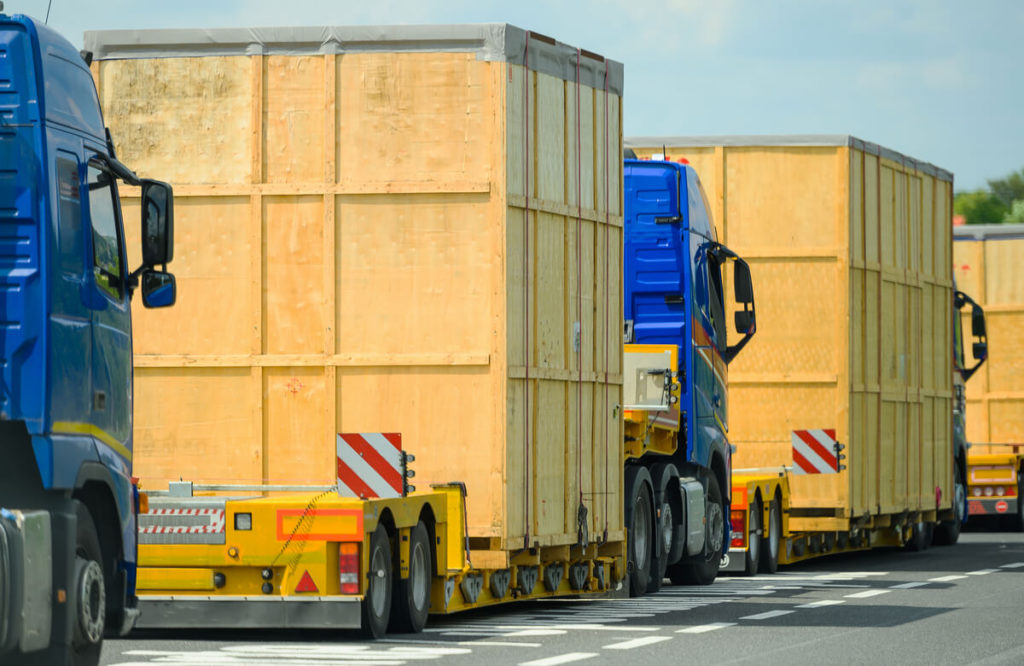On the European market, we have observed a continuously growing demand for relocation services over the past few years. Increasing customer expectations and time pressure cause the largest companies offering relocation services to constantly streamline transfer processes to complete comprehensive tasks in the shortest possible time. Such actions are particularly noticeable during the relocation of entire plants, which are being moved while production continues without interruption.

A comprehensive transfer of the production process has become a market optimization tool. Additionally, the significant increase in complexity and speed of execution offered by professional service providers allows clients to entrust them with the entire project with minimal organizational and operational involvement. In this model, the provider performs the service comprehensively:
- Conducts a verification audit.
- Prepares a detailed plan and schedule for the project.
- Engages in all organizational details – verifies equipment efficiency.
- Supports building stock for non-productive periods.
- Plans equipment modernization and adaptation to new requirements.
- Designs a new plant layout.
- Prepares utility connections.
Additionally, the service provider (depending on the scope) can take full responsibility for the technological efficiency of the equipment or the entire process after completing the relocation. This approach follows the long-standing principle: What works efficiently HERE must work efficiently THERE. Comprehensive relocation is a strategic mission for any company – therefore, choosing the right provider is crucial. Experience and a list of completed projects should be the primary determinants when selecting a provider. Checking references (preferably in person) and even visiting previous clients can help avoid the risk of so-called “unfinished highways.” Relocation services are becoming a key factor enabling companies to take advantage of globalization and free movement between countries or continents. Such services can be offered anywhere in the world, and there are no “borders” for them. Polish companies and experts are known worldwide for offering excellent quality at a reasonable price, allowing them to win contracts and participate in international projects. However, it should be emphasized that this market increasingly expects advanced organizational and comprehensive solutions from providers – preparing a plan and conducting the transfer is not enough. A comprehensive provider manages the entire project of starting production at a new location, designs the destination placement sites, and prepares the required infrastructure (utilities – electricity, liquids, gases, compressed air, ventilation).
“Overseas” Projects The European relocation market is divided into large but infrequent projects – comprehensive relocations of entire production plants, and smaller, more frequent projects – relocations of machines or production lines. Poland, along with other Central and Eastern European countries, is often chosen as the preferred location for relocating entire plants or even entire industry groups. Observing transfer directions since 2015, certain changes can be noticed. China, relocating production to Europe (mainly Central-Eastern Europe), seeks direct distribution channels. Western Europe and Scandinavian countries also willingly locate their plants in this part of Europe but increasingly choose other locations – Malaysia, Taiwan, India, and Mexico. For many years, we have observed a comparable number of transfers between the USA and Europe (in both directions), but their total number has increased several times in the last five years. Since providers began offering a comprehensive adaptive approach to relocation projects – modernization of electrical supply, adaptation of machines and documentation to current regulations (e.g., CE certification, minimum safety requirements, machinery directives) “overseas” projects (USA-Europe) have become very popular. Increasingly, clients are investment funds that, after acquiring small enterprises in Europe or North America, decide to relocate and consolidate production activities in Poland or other Central and Eastern European countries. Often, in addition to production plants, research and development centers are created in their vicinity, and advanced technologies are transferred in the automotive, aviation, metallurgical, and electronic industries. There are many reasons for such actions – lower labor costs, access to highly qualified specialists in various fields, access to potential markets. Globalization of markets has also directly influenced the increase in the number of projects implemented – comprehensive transfer has become a natural organizational tool for many companies. Relocation of used equipment between branches, utilization of equipment – elements of “old processes” to build new ones, relocation of individual production lines to reduce costs (tax or customs burdens) are increasingly becoming the motivator for actions. As we can see, regardless of motivation, the European market shows growing customer demands (complexity, speed of actions), an increasing number of projects (especially “overseas”), and the actions of relocation companies aimed at continuous improvement of processes and expansion of offered services.
Sebastian M. Gawron CEO / SURET


